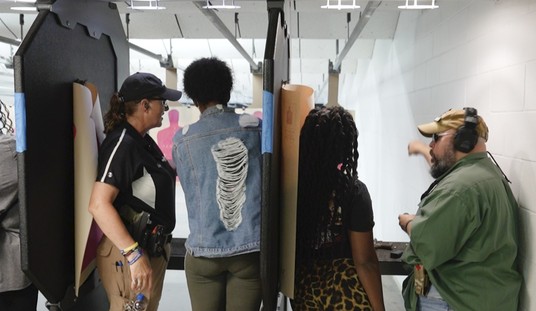Photo via Pixabay
It’s hilarious how many people think they have the “gotcha” on interpreting the Second Amendment.
One such soul wrote a letter to the editor to refute the grammar of the Second Amendment, arguing that how the Founding Fathers phrased absolutely, definitively proves the Second Amendment isn’t an individual right.
Careful grammar, of which the Constitution fathers were experts, offers nothing regarding gun rights of individuals. The sole subject of the Second Amendment is “A well regulated Militia.”
“The people” is not a second subject (there is no “and”). Throughout the Constitution, “the people” is always a collective. For individuals, the words used are citizen, person, member or party.
The letter is about constitutional carry, but I’ve seen this argument made more than once regarding the Second Amendment as a whole.
Let’s start with the phrase “A well-regulated Militia” and go from there. You see, that entire bit is an introductory clause, not a subject. Just because “militia” is a noun doesn’t mean it’s the subject. Instead, it’s a phrase used to preface the rest of the sentence. You can tell because even without it, you still have a complete sentence. “The people’s right to keep and bear arms shall not be infringed.” Instead, that phrase establishes a reason for the rest of the sentence. It doesn’t shift the subject.
But what got to me was this individual’s idea regarding “the people.”
To repeat:
Throughout the Constitution, “the people” is always a collective. For individuals, the words used are citizen, person, member or party.
That’s an interesting idea. Let’s take a quick look at the rest of the Bill of Rights–after all, they were all written at the same time and thus would use the exact same ideas of grammar and meaning, right?–and see what we can see.
Amendment I
Congress shall make no law respecting an establishment of religion, or prohibiting the free exercise thereof; or abridging the freedom of speech, or of the press; or the right of the people peaceably to assemble, and to petition the Government for a redress of grievances.
Amendment II
A well regulated Militia, being necessary to the security of a free State, the right of the people to keep and bear Arms, shall not be infringed.
…
Amendment IV
The right of the people to be secure in their persons, houses, papers, and effects, against unreasonable searches and seizures, shall not be violated, and no Warrants shall issue, but upon probable cause, supported by Oath or affirmation, and particularly describing the place to be searched, and the persons or things to be seized.
Makes me wonder if the First and Fourth Amendments now only apply to state militias as well.
Look, I wish the Founders had skipped that introductory clause myself. It has added confusion that didn’t need to be there. We know damn good and well what the Founding Fathers intended because their writings make it very clear that they wanted an armed citizenry and they intended for us to rise up if needed to overthrow unjust rulers.
We’ve been fortunate that such a thing hasn’t really been needed, but their intentions were painted clearly for anyone who cares to look.
But anti-gunners aren’t above trying to play games with grammar, hoping that people won’t look for themselves or that they’re just too stupid to not look at an argument critically.
The truth is, arguments like the ones above are ridiculous, especially the argument that “the people” always refers to a collective right. That’s not the case and has never been the case.








Join the conversation as a VIP Member